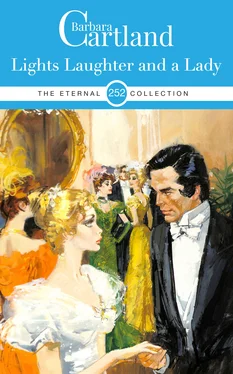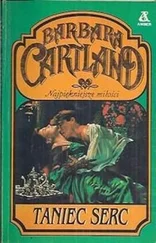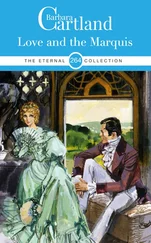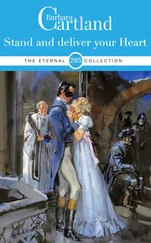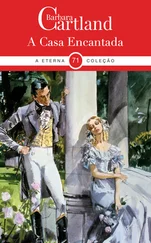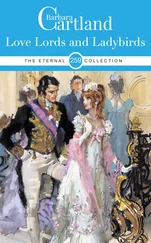“They’ll be safe enough in the roof of one of my barns,” he said, “so don’t you go partin’ with anythin’ you wants to keep.”
“I only wish I could keep the house,” Minella replied impulsively.
“That be true and the village won’t be the same without his Lordship gallopin’ about, lookin’ as if he owned the world!”
Minella gave a little laugh.
It was a very apt description of her father and, however poor they had been, however many bills remained unpaid, her father had always seemed not only to look rich but to appear to believe that life was an amusing joke.
It was an attitude he transmitted to other people and she could understand why Connie had addressed him as the ‘Lord of Light and Laughter’.
It seemed strange in a way that she should have addressed him in so familiar a fashion, but then Minella felt that Connie had always been rather inclined to gush at people.
It was something that she knew her mother thought that a lady should not do and she had often talked to her about being restrained and self-controlled.
“It is best, dearest,” she had said in her soft voice, “to have a little reserve about your feelings, but at the same time to be warm, sympathetic and, of course, understanding.”
“It sounds rather complicated, Mama.”
“Not really,” her mother had answered, “and I want you to live up to your looks.”
Minella had been surprised and had not been quite certain what her mother meant.
Then she thought that once again, like her father, she was telling her that she looked like a lady and so must behave like one.
She knew that her mother’s family who lived in the North of Ireland were very proud and, although they did not have much money or possessions, they could trace their ancestry back to one of the Kings of Ireland.
“I wish you could be a Queen now, Mama.” Minella had said once when she was small.
Her mother had laughed and her father, who had been listening, said,
“She is a Queen! She is the Queen of my Heart and that is a more important position than that of Queen Victoria alone on the Throne of England!”
Minella had made up little stories for herself in which her mother was a Queen and she was a Princess.
She had thought that one day she would meet a handsome Prince, who would look very much like her father and they would be married and live happily ever afterwards.
But living in The Manor she saw no young men and the little she knew about them was confined to her father’s descriptions of the house parties that he had been invited to after her mother’s death.
He described the friends he met at Race Meetings where he invariably lost money and at the parties he enjoyed in London that for some reason he was surprisingly reticent about.
‘I suppose that I shall never have a chance of getting married,’ Minella thought, a little wistfully.
She knew that her mother had planned that somehow when she was eighteen she would contrive that she would go to some balls and if it was humanly possible be presented to the Queen at a Drawing Room in Buckingham Palace.
‘Now I shall just have to earn my living and forget about all that,’ Minella told herself firmly as she packed away her mother’s gowns.
Then she stopped.
Her mother’s clothes were far smarter and in far better condition than hers, even if they might be a little out of date.
Impulsively she took some of them from a huge weather-beaten trunk and then put them instead into the smaller one that she was taking with her to London.
There were two very pretty ballgowns that her mother had worn the last time her father had taken her to London for an exciting weekend after saying he could not bear the boredom of the country any longer.
Her mother had come back looking happy and relaxed and even much younger than she had for a long time.
“We had a wonderful time, darling,” she had said to Minella. “I am afraid we were very extravagant and Papa took me to dine out with his friends. We went to several theatres and even very daringly to a music hall!”
This meant very little to Minella, who had never been to a theatre, except once to see a pantomime in the nearest town at Christmas time.
She had, however, listened to everything that her mother had told her and had asked her innumerable questions.
“Did you go to the Gaiety Theatre , Mama?” she enquired, because she had heard her father talk about it.
“Yes, we went there,” her mother replied, “and the Gaiety Girls are really as lovely as Goddesses, just as everybody says they are.”
“Tell me about them, please, tell me about them,” Minella pleaded.
Her mother described how they had travelled to the theatre in a hansom cab.
“It was more thrilling than going in a brougham,” she related, “and we had a box, which again was very extravagant. It is difficult to explain how glamorous the theatre is and how exquisite the scenery and I have been humming the music ever since.”
“Did you enjoy it too, Papa?”
“Every moment,” her father replied, “but I can tell you there was nobody on the stage as beautiful as your mother, even though they looked as though they had floated down from Mount Olympus.”
Because everything they told her had stayed in Minella’s mind, she had said to her father once when they were out riding,
“Why are the Gaiety Girls more attractive than the actresses in other theatres, Papa?”
Her father thought for a moment.
Then he said,
“I do think because they have a grace and beauty and an aura of femininity that is every man’s ideal. When he sees them on the stage, they make him feel that he is very much a man. And that, my dear, is the story of Adam and Eve since the beginning of time.”
This was in fact incomprehensible to Minella but she knew her father well enough to be aware that he liked women to be very feminine, as her mother was.
He always made a point of correcting her if he thought that she was behaving in any other way.
“Don’t shout at me like that!” he had called sharply once when a boy had run across the road in front of her horse and Minella had shouted out to him to be more careful.
“I was afraid you might knock the silly child over,” she had said.
“You could have said the same thing in a much more pleasant manner.”
She had looked at her father in surprise and he had added,
“I want you to be perfect, my darling, just as your mother is, so that one day some lucky man will thank me for all the trouble I have taken over you.”
“You mean the man I shall marry?”
“Of course,” he had replied. “Who else? And make no mistake, whoever is your husband will have gained himself a sublime prize!”
“Suppose I fall in love with somebody who does not fall in love with me?”
“I think it unlikely and, if I find any young whippersnapper trifling with your affections, I will knock his head off!”
Her father had spoken fiercely and Minella had thought it thrilling to have a father who cared so much for her and was ready to fight like a Medieval Knight in her defence.
Now, she thought, her father was no longer here and she would have to look after herself.
As the train drew nearer and nearer to London, she began to think that she had made a mistake.
London was very large and frightening, and from the train she could see row upon row of houses stretching away into what seemed infinity.
‘I should have gone to Aunt Esther’s,’ she told herself.
Then logically she reasoned that if things did not work out in London as she hoped they would, there was always Aunt Esther waiting for her.
She had written a very tactful letter thanking Lady Banton for her kind invitation and saying that she had not yet made up her mind exactly what she would do but intended staying with friends for a few weeks.
Читать дальше
